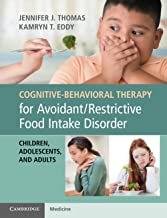Avoidant & Restrictive Food Intake
Avoidant/restrictive food intake disorder (ARFID), previously known as feeding disorder, is a type of eating disorder in which people eat only within an extremely narrow repertoire of foods.[1] It is a serious mental health condition that causes the individual to restrict food intake by volume and/or variety.[2] This avoidance may be based on appearance, smell, taste, texture (because of sensory sensitivity), brand, presentation, fear of aversive consequences, lack of interest in food, or a past negative experience with the food, to a point that may lead to nutritional deficiencies, failure to thrive, or other negative health outcomes.[2][3][4] The fixation is not caused by a concern for body appearance or in an attempt to lose weight. [5]
Cluster Number:
Wiki Number: W020
Diagnosis: Avoidant & Restrictive Food Intake Disorder
US Patients:
World Patients:
Sex Ratio:
Age Onset:
Brain Area:
Symptoms: eat only a very narrow menu of foods; cannot change eating habits
Progression: may exclude all fruits or all vegetable; certain certain colors, soft, etc. May still have digestive problems.
Causes:
Medications: relaxation, systematic desensitization and review
Therapies: With adults, may disappear spontaneously; with cognitive behavior therapies.
Yuoutube Video: Living with Avoidant Restrictive
Food Intake Disorder
Amazon or Library Book: Cognitive Behavioral Therapy
(Talking Therapy) for Avoidant Restrictive Food Intake Disorder
Click the book to link or order from Amazon.

